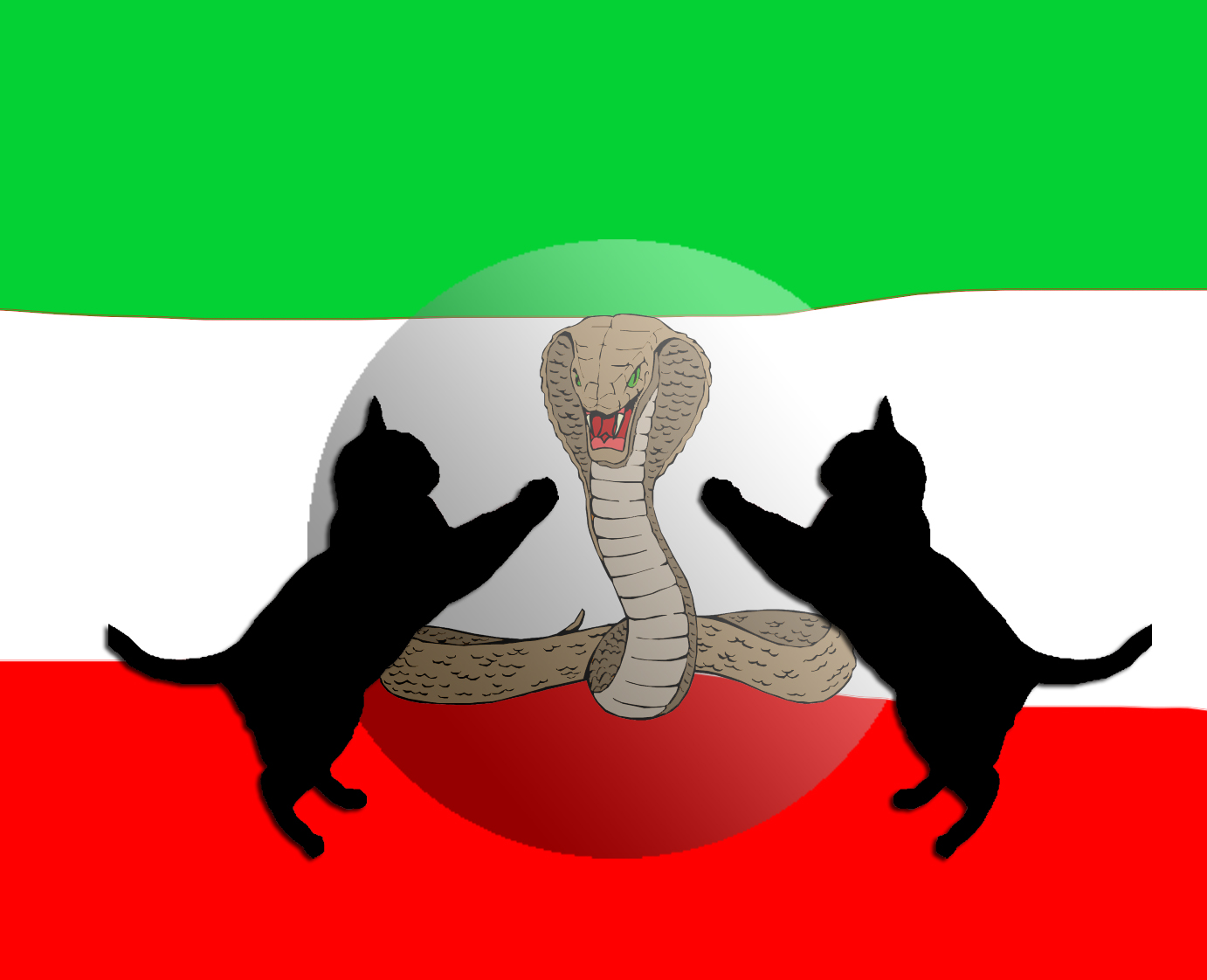The recent nuclear deal with Iran has been the subject of much scrutiny for many Americans. Among those opposed to the deal are several leading politicians from both parties, most notably Eliot Engel (D-N.Y.) and Jeb Bush (R-Fla.). Despite staunch resistance to the deal, I contend that it will lead to a much safer Israel, United States and by extension, world.
Recent American policy has made the current state of Iranian relations inevitable. The United States gives more than $3 billion dollars to Israel every year in military aid — a country who maintains one of the most advanced nuclear programs in the world — while simultaneously imposing crippling sanctions to the Iranian government for operating, by comparison, a primitive nuclear program. American rationale is that if Iran were to acquire a nuclear weapon, they would likely use it, especially given several of Supreme Leader Ayatollah Khamenei’s quotes that express a desire to “eliminate” Israel.
Nonetheless, from the Iranian perspective, sanctions were hypocritical.
Despite their ostensible hypocrisy, the sanctions were not without merit; Iran with a nuclear weapon would have the capacity to be dangerous. Capacity, however, is not synonymous with intent. Regarding the possibility of a nuclear Iran, Dr. Kyle Beardsley, a former political science professor at Emory, said that “Iran [has] no incentive to use its nuclear weapons in aggression; doing so . . . would gain Iran little and cost it much.”
Iran’s use of a nuclear weapon offensively would invariably result in United States and Israel retaliating — a consequence that Iran would never intentionally cause. Even Mahmoud Ahmadinejad — Iran’s former president who was portrayed as an irrational leader by Western media — said “[Imagine that Iran did] have an atomic weapon, a nuclear weapon. What would we do with it? What intelligent person would fight 5,000 American bombs with one bomb?”
The only rational conclusion, then, is that Iran wanted nuclear weapon as a defense measure against Israel, against the United States and against the rest of the Western world.
Because the Iranian government’s intention was to create a nuclear weapon to defend themselves against their enemies who already had nuclear weapons, it is easy to see why Iran found these sanctions grossly hypocritical. It would be unfair to declare that Iran cannot be trusted with their nuclear program in the future because of their past flouting of American sanctions which they were forced to violate in order to preserve their own safety.
Yet despite Iran’s past dishonesty, the deal ensures that Iran does not even have the capacity to create a nuclear weapon. Under the deal, Iran must reduce the number of centrifuges in their plants by over 66 percent and reduce their stockpile of uranium well below the amount required to create a nuclear weapon.
The deal also dictates that the International Atomic Energy Agency (IAEA) will supervise the nuclear facilities. The once covert operation will now be under the strict and unprecedented regulation of the IAEA.
The frequent argument that the IAEA’s supervision is not sufficient results from the clause that it must give a 24-day notice before searching locations other than official Iranian nuclear plants (i.e. where Iran might be hiding uranium). The only reason Iran would have any hidden uranium in the first place is if they were constructing a nuclear weapon. Given only 24 days, it would be nearly impossible for Iran to dispose of so much uranium (remember that in order to create a nuclear weapon, they must have several times the amount of uranium than the deal allows in all of their nuclear facilities combined). In addition to the massive amount of uranium there would be to destroy, the IAEA would be so closely monitoring Iran in the given time frame that any attempt by Iran to conceal the uranium would almost inevitably result in their being caught by the IAEA.
Because the IAEA so closely supervises the uranium supply chain, that scenario would be almost impossible to begin with. The only way Iran could even amass enough uranium is if they had a separate, massive, hidden supply chain.
In essence, the deal both weakens the capacity of the Iranian nuclear program and puts it under strict supervision.
Benjamin Netanyahu has made quite a scene in the past few months regarding his adamant disapproval of the nuclear deal. Unsurprisingly, however, many of Israel’s top-ranking officials disagree with him. In an open letter written to Netanyahu, many signers — far too numerous to mention in this article — including high-ranking members of Israeli armed forces, intelligence, defense and security, expressed support for the deal.
This revolutionary act of cooperation between the United States and Iran renders Iran incapable of producing nuclear weapons. The terms of the landmark deal between the United States and Iran invariably make all parties safer and drastically reduce the threat of nuclear attack worldwide.
Grant Osborn is a College freshman from Springfield, Ohio.
grant.osborn@emory.edu | Grant Osborn (19C) is from Springfield, Ohio, majoring in philosophy. He has been involved with the Wheel since his sophomore year. Outside the Wheel, he plays rugby and is an active member of the mock trial team. He is abroad Spring 2018.







“Nonetheless, from the Iranian perspective, sanctions were hypocritical.”
All foreign policy is hypcritical at some level. You’re stating the obvious. Just because it is hypocrtiical it does not mean it is right or wrong. It is far more nuanced than that. Every single day Muslims show us they prefer death over life. The Qur’an and hadiths are filled with examples and proclamations that Muslims who die in the act of Jihad shall be rewarded.
Should we not take these things into consideration as well? Or would it be hypocritical to understand the profound differences between Jewish teachings and values versus those of Muslims?
“… Dr. Kyle Beardsley, a former political science professor at Emory, said that “Iran [has] no incentive to use its nuclear weapons in aggression; doing so . . . would gain Iran little and cost it much.”
There have been numerous books written on how bad experts are at predictions, yet you apparently put stock in Dr. Beardsley. Yell me, what was this man’s predictions about the Arab Spring? Was he one of those countless “experts” who predicted it would lead to more pluralistic societies instead of the theocratic cesspool that it has become?
“The only rational conclusion, then, is that Iran wanted nuclear weapon as a defense measure against Israel, against the United States and against the rest of the Western world.”
I do not mean to be cruel, but this is the silliest sentence I have read in a long time. Truly amazing.
“Nonetheless, from the Iranian perspective, sanctions were hypocritical.”
All foreign policy is hypocritical at some level. You’re stating the obvious. Just because it is hypocrtiical [Sic.] it does not mean it is right or wrong. It is far more nuanced than that. Every single day Muslims show us they prefer death over life. The Qur’an and hadiths are filled with examples and proclamations that Muslims who die in the act of Jihad shall be rewarded.
Should we not take these things into consideration as well? Or would it be hypocritical to understand the profound differences between Jewish teachings and values versus those of Muslims?
Actually, every major terrorist group in the Middle East is Sunni, while Iran is not only Shia, but is the only country in the Middle East who takes an active role in fighting those groups (namely, Al-Qaeda, the Taliban, and ISIS–all long before the United States fought them).
“The only rational conclusion, then, is that Iran wanted nuclear weapon as a defense measure against Israel, against the United States and against the rest of the Western world.”
I do not mean to be cruel, but this is the silliest sentence I have read in a long time. Truly amazing.
The only way Iran could bring themselves to use a nuclear weapon on Israel is if they had already accepted a fate of death. While the Ayatollah may be on the crazy side, he certainly isn’t suicidal. Sure, he said that he hopes there will be no Jewish state in the near future. Netanyahu also said that he will never let Jews become a minority in Israel (if Gaza and West Bank are included, Jews already are a minority). Does that mean he is willing to start a genocide? Of course not; politicians’ words are often just empty rhetoric. Unless the Ayatollah is willing to commit suicide (along with his entire country), he wouldn’t use a nuclear weapon offensively.
Interesting how Arafat didn’t even address the issue of whether or not the deal would prevent Iran from acquiring a nuclear weapon in the first place…